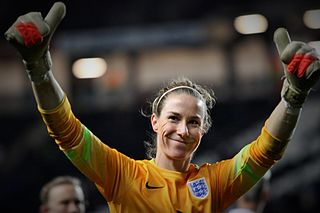A Quote by Karen Bardsley
I think City is a really good example of how you shift the culture internally. We've had a big culture shift, particularly in the academy. Young boys are now more comfortable with strong female athletes being around.
Related Quotes
In most places and times in human history, babies have had not just one person but lots of people around who were really paying attention to them around, dedicated to them, cared to them, were related to them. I think the big shift in our culture is the isolation in which many children are growing up.
Good. Now the first thing you do is press in the clutch and slide the gear into reverse." She placed his hand on the gear shift in the center of her car, and showed him how to move it up and down. "You know, you really shouldn't fondle that in front of me, Grace. It's cruel." "Julian! Do you mind? I'm only trying to show you how to shift my gears." He snorted. "I wish you'd shift my gears like that.
I'm not a big believer in revolutions. What people call revolutions in technology were more of a shift in perception - from big machines to PC's (the technology just evolved, fairly slowly at that), and from PC's to the internet. The next "revolution" is going to be the same thing - not about the technology itself being revolutionary, but a shift in how you look at it and how you use it.
The disappearance of theology from the life of the Church, and the orchestration of that disappearance by some of its leaders, is hard to miss today, but oddly enough, not easy to prove. It is hard to miss in the evangelical world--in the vacuous worship that is so prevalent, for example, in the shift form God to the self as the central focus of faith, in the psychologized preaching that follows this shift, in the erosion of its conviction, in its strident pragmatism, in its inability to think incisively about the culture, in its reveling in the irrational.
At Harman, we had to reinvent ourselves so that we can compete on a global playing field. We did it by instituting a culture where teams can take calculated risks. But to inspire such a shift in mindset requires meaningful rewards across the ranks and freedom to experiment and innovate. I like to think of it as our courage culture.
2006 Games -by then, my identity had started to shift. Before that, my identity was in snowboarding. That's how people knew me and that's how I knew myself. That's where I got a lot of my self worth. That began to shift and I started to understand that I didn't get my worth from people or from the things that I did. It was from Christ. If I hadn't had that shift in my life, I think my world would have come crumbling down.
I think we really need a movement to drive how popular culture understands the issues that feminists care about. When I think about the LGBT movement for example, they have had a really intentional strategy to try to change images and representation of LGBT people in the media and the culture. It really moved the dial politically. That's what is needed in the women's movement - a strategy that can drive awareness and culture change.
You can hear a real shift. You listen to the late 80s recordings, you'll hear us engaging with the audience, dealing with the issues surrounding punk shows at the time. Back then, people thought you had to be a skinhead and beat the crap out of everybody when you went to a punk show. Come the early 90s, when you had this so-called grunge stuff and when videos became so dominant, you had this totally huge shift in the culture of shows.






































